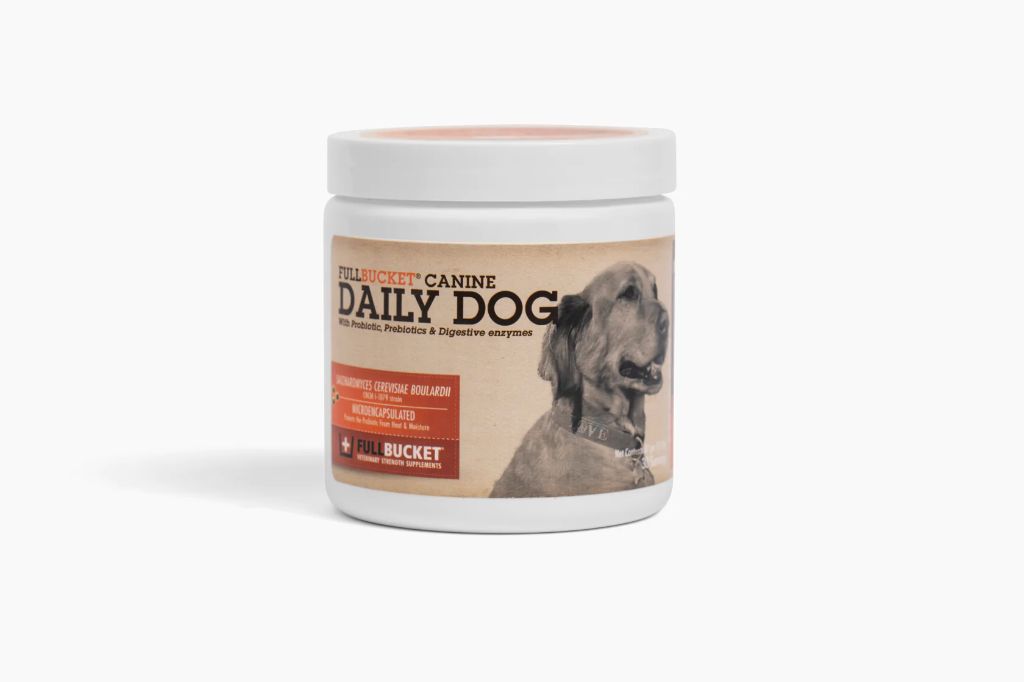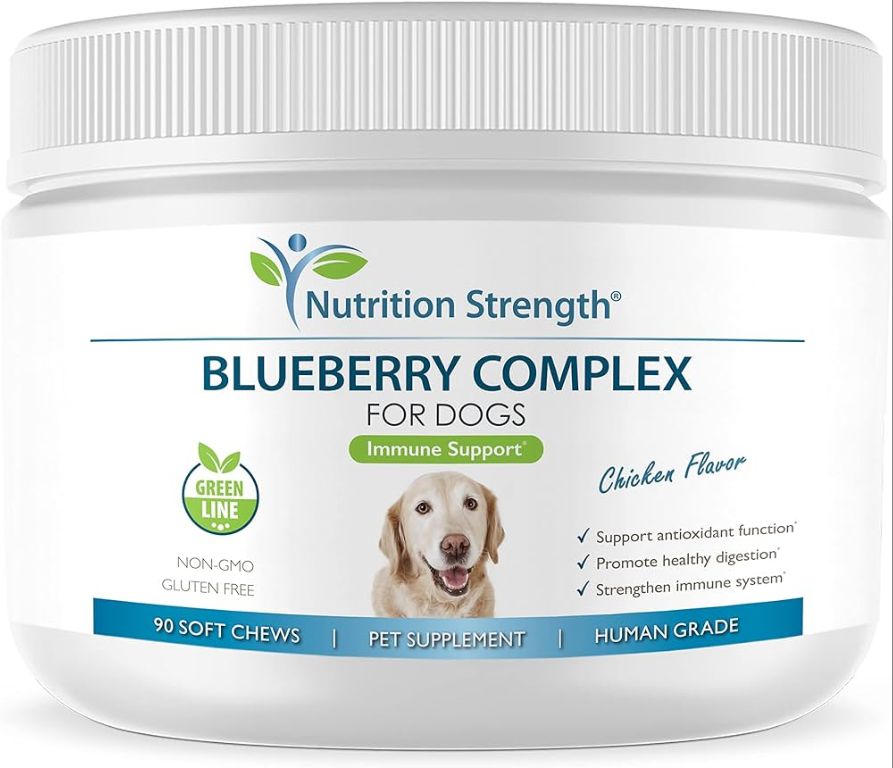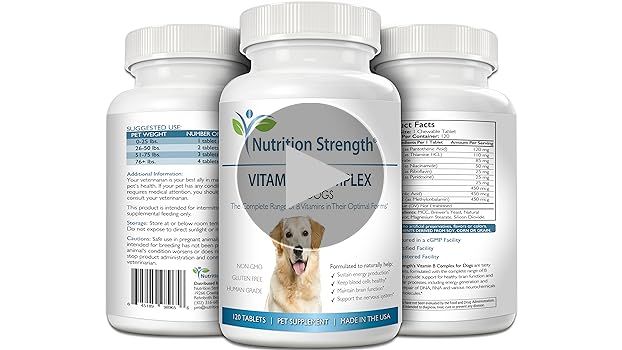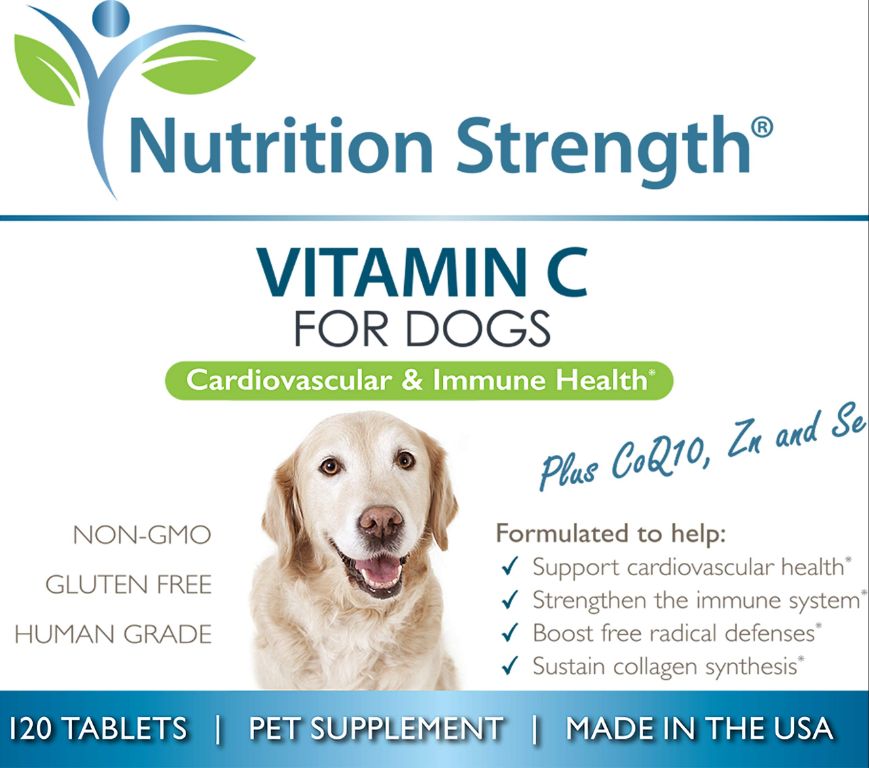Introduction
Vitamins play a crucial role in the health and wellbeing of dogs. They help regulate bodily functions, provide energy, and support growth and development. When making homemade dog food, it’s important to understand what vitamins dogs need to stay healthy.
Compared to commercial dog foods, homemade diets don’t always provide complete and balanced nutrition. They may lack certain vitamins and minerals dogs need. While commercial foods are formulated by veterinary nutritionists to provide optimal nutrition, homemade food requires careful planning and supplementation to meet a dog’s needs.
By learning about the vitamins dogs require, you can create nutritious homemade meals. With proper supplementation and variety, homemade food can potentially meet or exceed the nutrition of commercial diets. This article will overview the key vitamins dogs need from their diet and how to provide them in homemade food.
Common Vitamin Deficiencies
Dogs on homemade diets are at risk for certain vitamin deficiencies if their food is not properly supplemented. This is because the cooking process and storage time can deplete vitamins in home-cooked ingredients. Some of the most common vitamin deficiencies in homemade dog food diets include:
– Vitamin A: This vitamin supports vision, bone growth, reproduction, cell function and immune health. Deficiency can lead to vision problems, infections, and impaired growth.
– Vitamin D: Needed for calcium absorption and bone health. Without adequate vitamin D, dogs can develop rickets.
– Vitamin E: An important antioxidant that protects cells from damage. Deficiency can result in muscle weakness and neurologic problems in dogs.
– Vitamin K: Plays a role in blood clotting. Dogs with low vitamin K levels are at risk for excessive bleeding.
– B Vitamins: Support energy production, digestion, skin health and more. A B vitamin deficiency can lead to anemia, poor growth and appetite issues.
– Vitamin C: Needed for collagen production, immune function and antioxidant protection. Dogs make their own vitamin C, but cooking destroys it.
Vitamin A
Vitamin A is an essential vitamin for dogs that supports vision, bone growth, reproduction, cell division, and immunity [1]. It has several key functions and benefits:
– Maintains healthy vision – Vitamin A is critical for good eyesight as it keeps the cornea transparent and moist [2]. Deficiency can lead to night blindness.
– Supports bone growth and remodeling – Vitamin A is needed for proper bone formation and growth. It also aids in bone remodeling in adult dogs.
– Boosts immunity – Vitamin A helps regulate immune function and fights infection. It maintains healthy skin and mucous membranes.
– Enables reproduction – Vitamin A is essential for male and female reproductive health and fetal development.

Dogs with vitamin A deficiency can develop eye problems, increased susceptibility to infection, impaired bone growth, and reproductive issues [3]. Symptoms include night blindness, skin problems, diarrhea, and weight loss.
Good food sources of vitamin A for homemade dog food include liver, kidney, fish oils, eggs, dairy products, and orange vegetables like carrots, sweet potatoes, and squash.
Vitamin D
Vitamin D is an essential nutrient for dogs that helps regulate calcium and phosphorous levels and promotes bone health. Dogs generate vitamin D when their skin is exposed to sunlight. However, indoor dogs or dogs not receiving enough sun exposure often become deficient (source).
Vitamin D has several important functions and benefits:
- Helps dogs absorb calcium to promote strong bones
- Prevents rickets and osteomalacia (soft, weak bones)
- Supports immune system health
- May protect against some cancers, kidney disease, heart disease
Symptoms of vitamin D deficiency include:
- Weak and brittle bones
- Bone deformities like bowed legs
- Fractures
- Muscle weakness
- Fatigue
- Depression
Good food sources of vitamin D for homemade dog food include salmon, sardines, eggs, liver, cheese, and yogurt (source). Vitamin D supplements may be needed, especially for dogs not exposed to much direct sunlight.
Vitamin E
Vitamin E is an essential vitamin for dogs that acts as an antioxidant to protect cells from damage. It also supports skin, coat, eye, neurological and immune health (Dog Supplements for Homemade Dog Food – Prana Pets).
Functions and benefits of vitamin E:
– Powerful antioxidant that prevents free radical damage to cells
– Supports healthy skin and coat
– Maintains eye health
– Protects nerves and neurological function
– Boosts immune system function
Symptoms of vitamin E deficiency include:
– Skin problems like scaly skin, itching, hair loss
– Eye issues like retinopathy, cataracts
– Muscle weakness and coordination problems
– Neurological disorders
– Suppressed immune function

Good food sources of vitamin E include:
– Wheat germ oil
– Sunflower oil
– Safflower oil
– Soybean oil
– Nuts like almonds and hazelnuts
– Seeds like sunflower seeds
Vitamin K
Vitamin K is an essential vitamin for dogs that has several important functions. Vitamin K is needed for proper blood clotting and bone metabolism. It also helps regulate calcium in the body. There are two main forms of vitamin K – K1 and K2. Vitamin K1 is found primarily in leafy green vegetables, while K2 is found in animal-based foods and fermented foods containing probiotics.
Vitamin K deficiency can lead to bleeding disorders in dogs as their blood cannot clot properly. Symptoms may include bleeding gums, nosebleeds, bruising easily, blood in urine or stool. Prolonged deficiency can also lead to weak, brittle bones. Vitamin K toxicity is very rare in dogs.
Some of the best food sources of vitamin K for dogs include:1, 2:
- Leafy greens like kale, spinach, Swiss chard
- Broccoli
- Cabbage
- Asparagus
- Liver
- Egg yolks
Ensuring your dog’s homemade diet includes adequate vitamin K from quality whole food sources can help prevent deficiency and related health issues.
B Vitamins
B vitamins are a group of water-soluble vitamins that play important roles in a dog’s health. Some of the most important B vitamins for dogs include:
Thiamine (B1) – Thiamine is essential for metabolism, growth, and nerve function. Deficiencies can lead to weight loss, neurologic problems, and heart issues.[1]

Riboflavin (B2) – Riboflavin aids in enzyme functions and energy production. Signs of deficiency include skin problems, poor growth, and reproductive problems.[2]
Niacin (B3) – Niacin supports skin, nerve and digestive health in dogs. Niacin deficiency can result in inflamed gums, diarrhea and dermatitis.[3]
Pantothenic Acid (B5) – This B vitamin is needed to form coenzyme-A, which assists in energy metabolism. Deficiencies are rare but may cause gastrointestinal issues.[1]
Pyridoxine (B6) – Pyridoxine plays a role in amino acid metabolism and red blood cell formation. Signs of deficiency include dermatitis, convulsions, and lethargy.[2]
Biotin (B7) – Biotin benefits skin, hair, digestive and nervous system health. Deficiencies can lead to skin rashes, hair loss, and muscle pain.[4]
Folate (B9) – Folate assists with DNA and cell synthesis. Anemia is the most common symptom of folate deficiency in dogs.[3]
Cobalamin (B12) – Cobalamin supports nerve myelin formation and red blood cell production. Deficiency can cause poor growth, weakness and gastrointestinal problems.[4]
In summary, B vitamins support several vital bodily functions in dogs. Feed your dog a balanced diet with bioavailable sources of these essential nutrients.
Vitamin C
Vitamin C is an essential nutrient for dogs that supports many vital bodily functions. It acts as an antioxidant, helping to protect cells from damage caused by free radicals. Vitamin C is also important for collagen production, wound healing, immune system health, and iron absorption.
Deficiency in vitamin C can lead to symptoms like bleeding gums, nose bleeds, joint pain, and even scurvy in severe cases. Since dogs can synthesize some vitamin C on their own, deficiencies are not common but can occur if the diet is lacking in vitamin C over an extended period.
Some of the best food sources of vitamin C for dogs include fruits like oranges, grapefruit and strawberries. Vegetables like broccoli, Brussels sprouts, peppers and tomatoes are also high in this vitamin. Adding a vitamin C supplement or boosting foods high in vitamin C can help ensure your dog is getting enough of this essential nutrient.

According to this source, adding vegetables like broccoli, Brussels sprouts and tomatoes is an easy way to increase the vitamin C content of homemade dog food recipes.
Other Vitamins
In addition to the major vitamins listed above, there are some other vitamins that are beneficial to add to homemade dog food in smaller amounts:
Biotin helps metabolize fats, proteins, and carbohydrates. It contributes to healthy skin and coat. The recommended amount is 30 mcg per 1,000 calories consumed.
Choline supports liver and brain function. It aids in metabolism and transport of lipids. The recommended amount is 1,400 mg per 1,000 calories consumed.
Other vitamins like niacin, pantothenic acid, and folic acid play roles in energy metabolism, neurological function, and red blood cell synthesis.
Conclusion
Homemade dog food can provide many health benefits compared to commercial kibble, but it’s vital to include the right vitamins and minerals. The most critical vitamins for a homemade dog diet are vitamin A for vision and skin health, vitamin D for bone health and immunity, vitamin E for antioxidant support, vitamin K for blood coagulation, B vitamins for metabolism, and vitamin C for immunity and collagen formation [1].
To balance a homemade diet, use a comprehensive supplement powder formulated for dogs that contains a blend of vitamins, minerals, and antioxidants [2]. Follow package directions carefully and transition slowly when introducing. Also, consult your veterinarian, especially for puppies or dogs with specific health conditions. With thoughtful nutrition, homemade food can keep dogs healthy, happy, and full of energy.
